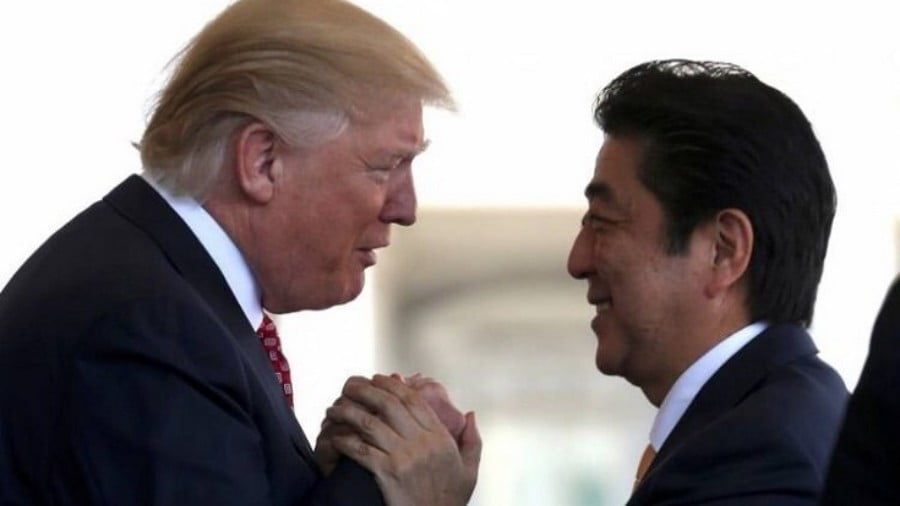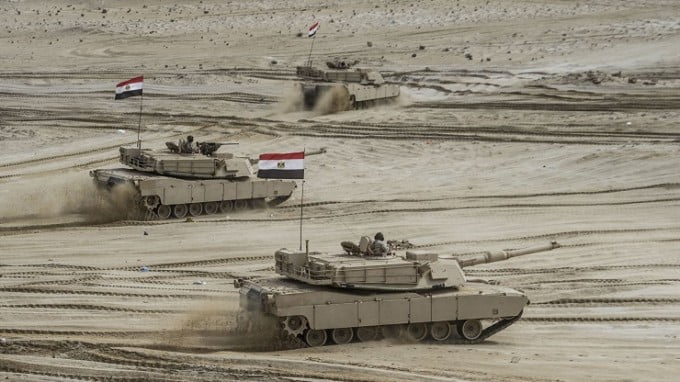Situation in Turkey is Putting Erdogan’s Abilities to the Test
In the last few years, Turkey’s economy has been caught in a drawn-out recession, largely due to the increasing costs related to the current model of economic growth. And as the economy is deteriorating, so is the political and economic situation in the country, forcing President Erdogan to make choices which are far from popular.
When Erdogan’s Justice and Development Party came to power at the beginning of the 2000s, Turkey placed all its hopes in a strategy of stimulating economic growth. In order to achieve this the Turkish government ramped up government spending and providing loans to stimulate the economy, and for many years the Central Bank kept the base rate to almost zero to support a high level of business activity. Turkey borrowed money in order to cover its budget deficit and negative foreign trade balance, and as a result its foreign debt has increased dramatically, from $104 billion in 2000 to $400 billion today. This formula allowed it to achieve rapid growth, and its economy has grown by an average of 5% every year since 2002, boosting standards of living and transforming Turkish business into a driver of development.
But since the US raised interest rates in summer 2018, developing markets, including Turkey, have suffered from capital flight. This problem has coincided with the imposition of US sanctions against Turkish goods, causing the national economy to suffer its first serious currency crisis, in which the Turkish lira dropped form 4 to almost 7 lira to the USD in August 2018. But despite the alarming signs in the currency market, the Turkish authorities have abstained from reining in credit, preferring instead to keep interest rates low. President Erdogan therefore held out for a long time against increasing the base rate, which put the Central Bank under great pressure and had the effect of keeping foreign investors away. At the end of November 2021 the Central Bank reduced the base rate from 16% to 15%, accelerating the devaluation of the lira, which reached its lowest value in the last 20 years.
Currently the Turkish economy, if not actually in crisis, is at least going through difficult times. The lira is in free fall, currency reserves are declining and foreign debt and unemployment levels are increasing rapidly. On top of all this, the pandemic has had a severe effect on the economy. Nureddin Nebati, Turkey’s Budgetary and Finance Minister, has warned that the annual inflation rate will remain high, at about 40%, for the next few months. But he could not rule out the possibility of it reaching as high as 50% Independent experts, however, calculate that the real inflation rate in the country is much higher, but the official figures are being kept low in order to support the government’s economic policies. For example, Steve Hanke, Professor of Applied Economics at Johns Hopkins University, has calculated that the real inflation figure in Turkey is 96%.
Given these circumstances, the opposition is calling on Erdogan to step down, and the police have investigated people for using social networks to organize demonstrations.
Erdogan is using all the tools available to him as President to find someone to blame for the problems, and replace the officials whom he considers responsible. Recently he has been changing the members of his economics team with alarming frequency. Thus he has replaced the head of the Central Bank three times in the last two and a half years and in December he appointed a new Finance Minister, Nureddin Nebati. And there was another high-profile replacement in April 2021, when the Trade Minister Ruhsar Pekcan was dismissed following a corruption scandal, and Mehmet Muş was appointed in her place. And now, as reported by the Financial Times, the President has dismissed Sait Erdal Dincer, head of the State Statistics Agency, after a reported disagreement on the national inflation statistics. Dincer had occupied the post for just 10 months, and was succeeded by the 40-year old Erhan Çetinkaya, who formerly served as vice president of Turkey’s Banking Regulation and Supervision Authority (BRSA).
The independent daily newspaper Cumhuriyet reports that several other senior Turkish civil servants have fallen foul of the President. According to the newspaper, those who may soon be replaced include Mevlüt Çavuşoğlu, the Foreign Minister, Mehmet Ersoy, Minister of Culture, Fahrettin Koca, Minister of Health, and Bekir Pakdemirli, Minister of Agriculture. The article’s authors emphasize, however, that it is unlikely that all these ministers will be replaced at the same time. The most politically significant of these replacements would be that of Mevlüt Çavuşoğlu. The Presidential Press secretary, İbrahim Kalın, is slated to take over from him.
At the same time as replacing the head of the State Statistics Agency, Erdogan appointed Bekir Bozdağ as Minister of Justice, a post he occupied in 2013-15 and 2015-17. Significantly, Bekir Bozdağ was Minister of Justice in 2016, at the time of the attempted coup, after which the President conducted a purge of state bodies. More than 130,000 civil servants, including 4,156 judges and prosecutors and 29,444 military soldiers were dismissed from their positions, accused of membership of or sympathy with “terrorist organizations”, and many media outlets and NGOs were forced to close. Civil liberties campaigners argue that these repressive measures were aimed at marginalizing dissenting voices and concentrating all authority in the hands of the President.
Some Turkish media report that since then the authorities have been only slightly more restrained in their rush to accuse people of every imaginable crime, and it seems likely that as the 2023 presidential elections approach Erdogan will take steps to undermine his most serious competitors. Thus, in January this year alone 51 persons were arrested on suspicion of being linked to Muhammed Fethullah Gülen’s prohibited opposition group, known in Turkey as FETÖ, which Ankara accuses of organizing the 2016 attempted coup. According to the Turkish newspaper Hürriyet, these arrests were made during a counter-terrorist operation conducted by members of the anti-terrorism forces and officers from 28 districts of Ankara province. All the persons arrested were either acting or reserve members of the armed forces or heads of military educational establishments.
The systematic repression is having a very negative impact on morale in the Turkish armed forces, and recently the number of suicides has increased dramatically, and even according to official Ministry of Defense figures it now outstrips the number of deaths in combat. According to independent researchers, the number of “suspicious deaths” is almost 3 times higher than the Ministry admits. The Stockholm Center for Freedom (SCF), citing data from the Brussels-based human rights group Solidarity with OTHERS, reports that a total of 82 people committed suicide following the mass purges in response to the 2016 attempted coup.
In January, the Turkish government announced that it has allocated 2 billion lira (approximately $150 million) for the construction of 36 new prisons – a clear indication of the authorities’ increasing use of the penitentiary system as a tool of repression. The decision was made as part of a program to increase investment in the security and intelligence services, launched with the approval of the President.
And in keeping with this policy of repression, President Erdogan has also resolved to tighten up control over the media, announcing penalties for media outlets that distribute content seen as “calculated to damage values.” In a statement, he insisted that Turkey needs to take steps to protect its “national culture” and counter the spread of “harmful content” distributed by the written, spoken and visual media. The President did not name any specific media organizations in the statement. He emphasized that legal measures would be taken to prevent the distribution of such content, and that overt or covert activities aimed at “destroying national and moral values” could not be tolerated. However, in addition to media organizations, individual journalists are also being targeted with repressive measures: last week the well-known journalist Sedef Kabaş was arrested after making a comment that was seen as a critical reference to the President on her Twitter account.







